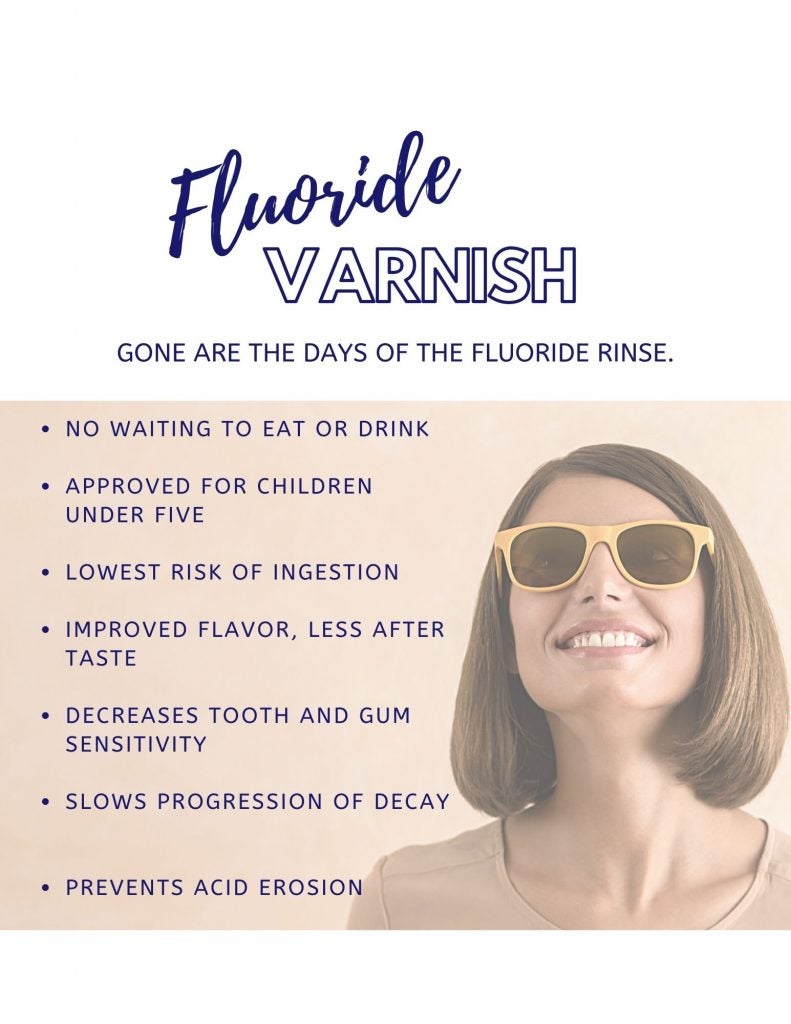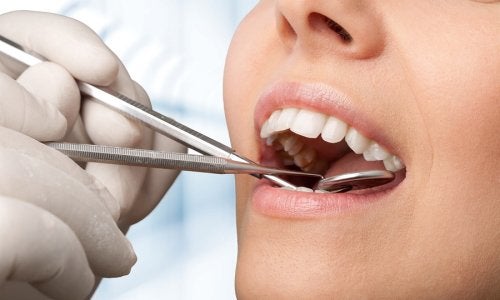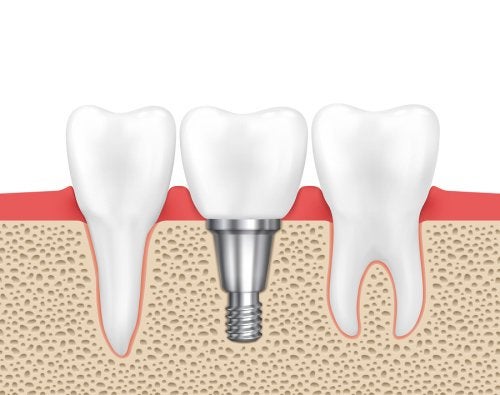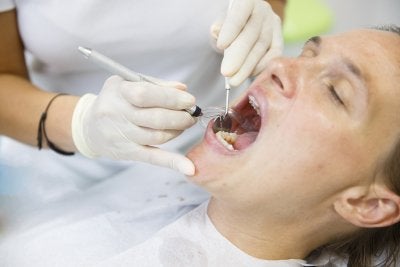-
Let’s Take Prevention to the Next Level

-
Identifying the Essentials of Good Oral Hygiene
If you’re like most people, then you dislike hearing that you have a dental cavity when you visit your dental office in Bel Air, MD for a check-up. Luckily, preventing the need for tooth fillings and other restorative procedures can be as simple as practicing good oral hygiene.
At home, dental care begins with keeping your teeth clean. To do this, use a toothbrush that has soft or medium-strength bristles, and switch to a new toothbrush once every 3 months. Brush your teeth twice per day for a full 2 minutes using a fluoride-containing toothpaste. Also, floss your teeth at least once per day, ideally before bed, to help dislodge any food that may be stuck between your teeth.
In addition to keeping up with brushing and flossing, scheduling regular dentist visits is also an important part of dental care. See your dentist twice per year for check-ups and cleanings to help keep your teeth free of stains and tartar and to catch small problems before they have a chance to grow into bigger ones.

-
What Are the Benefits of Orthodontic Evaluations for Kids?
A lifetime of proper dental health starts when your teeth first grow in, and there are steps that you should take along the way. When you have children, you become responsible for your kids’ oral health and must make regular visits to the pediatric dentist in Bel Air, MD. If your kids’ dentist determines that your child suffers from malocclusions or other developmental issues, he or she might recommend orthodontic treatment. The quick and efficient discovery through evaluation can lead to timely treatment . Take a look ahead to learn about the dental care benefits that come along with early orthodontic evaluations.
Top dental health in childhood paves the way for excellent oral health throughout the rest of your life. By taking your child to see the pediatric dentist for an orthodontic evaluation, you set your kids up for success. The early use of orthodontic treatments like braces and Invisalign can correct a serious problem early on, preventing it from becoming worse over time and causing additional complications. Your son or daughter can then move on from orthodontic treatment and enjoy a lifetime of proper dental health as well as the confidence boost that comes from a beautiful, healthy smile.

-
The Aesthetic Benefits of Dental Implants
If you have a chipped, broken, or missing tooth, you will want to make an appointment at a cosmetic dentistry office right away. An office that specializes in cosmetic dentistry in Bel Air will be able to provide you with beautiful dental implants that will completely transform your smile. Like porcelain veneers and dental bridges, dental implants are used to replace or restore teeth that have become lost or damaged. There are several aesthetic benefits that dental implants have to offer you.
With a new dental implant, you will enjoy a natural looking smile. Rather than having to hide your missing or broken tooth, you will be able to smile with total confidence. Dental implants also have the advantage of being matched to your natural tooth shape and color. After your procedure has been completed, it will be nearly impossible to tell the difference between your implant and your natural teeth.

-
Helping Your Kids Avoid Cavities
As a parent, it is important to teach your children proper oral health habits and hygiene. While cavities may be an unavoidable problem for some families, there are steps that you can take to help prevent a dental cavity in your child’s smile. A kid’s dentist in Bel Air will be able to gently clean your child’s teeth and check for the early signs of decay. Your pediatric dentist can also instruct your son or daughter on proper brushing and flossing techniques. To help you avoid the stress of a dental cavity, here is a look at some tips for helping your kids avoid tooth decay.

Brush and Floss Regularly
One of the most effective measures for preventing tooth decay is to encourage your children to brush and floss their teeth regularly. For optimum oral health, your child will need to brush and floss at least twice a day. Young children should be supervised throughout the brushing process. To help prevent cavities, you can also make sure that your kids use toothpaste that contains fluoride.
Eat Nutritious Food
Your child’s diet has a strong correlation with his or her oral health. Very sugary foods, such as candy or soft drinks, will cause harmful bacteria and plaque to build up in your child’s mouth. Over time, a sugar filled diet can cause cavities and other oral health issues. To ensure the proper oral health of your child, you will want to encourage him or her to eat a healthy diet that is filled with fruits, vegetables, and whole grains.
Schedule Dental Visits
Regular trips to the dentist will keep your child’s teeth in great condition. Children of all ages should visit the dentist at least once every six months. The twice yearly dental exam will allow your kids dentist to perform a thorough cleaning and check for any early signs of decay. During your regularly scheduled dentist appointments, your dentist can also make sure that your child is brushing and flossing correctly.
-
How Diabetes Can Affect Your Oral Health
Diabetes is a medical condition that can affect all of the major systems of the body. If you have diabetes, you may be surprised to learn that your oral health can also be affected by this disease. Fortunately, with services and care from a general dentistry office in Bel Air , you will be able to make sure that your teeth and gums remain healthy and strong. Your dental office can assist you with tooth filling, general cleanings, and a variety of other important dental care services. To help you care for your teeth, here is a look at how diabetes can affect your oral health.

Gum Disease
People with diabetes are more likely to develop gum disease than non-diabetics. Gum disease occurs in stages, and can be reversed if it is detected early. The beginning stage of gum disease is known as gingivitis. As gum disease progresses, puffy, red gums may start to bleed and recede. Advanced gum disease may result in tooth loss, abscesses, and other very serious issues.
Tooth Loss
Diabetic patients may also find that they are at increased risk of experiencing tooth loss. There are many reasons why a person may lose a tooth in adulthood. A tooth may need to be extracted if it is severely decayed or infected. Problems with the gum surrounding the tooth may also result in tooth loss. Fortunately, cosmetic dentistry procedures can be used to fill in the space left by a missing tooth and restore a patient’s smile.
Dry Mouth
Dry mouth is another oral health problem that is associated with diabetes. When a patient has a frequently dry mouth, he or she may develop ulcers, sores, and frequent cavities. Dry mouth is also a very uncomfortable condition. With services from a dentist in your area, you can prevent and treat any of the oral health issues that are associated with diabetes. Your dentist can keep your smile healthy and brilliant throughout your lifetime.
-
Tips for Caring for Your Sensitive Teeth
If you have sensitive teeth, you may find it uncomfortable to consume very hot or cold beverages and foods. Since tooth sensitivity can indicate the wearing down of your enamel or the recession of your gum line, it’s best to visit a dental office in Bel Air, MD, for a dental cleaning and exam. Proper dental care can resolve your tooth sensitivity by addressing the underlying problem. In the meantime, you can follow the tips explained in this video.
This video offers some at-home dental care guidance for sensitive teeth. It recommends brushing your teeth with a soft-bristled toothbrush and desensitizing toothpaste that contains fluoride. You can protect the enamel on your teeth by avoiding soda and acidic foods, and by waiting 30 minutes after eating before brushing your teeth.
-
What to Do In a Dental Emergency
It’s common knowledge that it’s important to see a dentist every six months for an exam and professional cleaning, but there are some situations that call for an additional visit to a dental clinic in Bel Air, MD. You should see an emergency dentist if you experience oral injuries, significant dental pain, or tooth trauma such as a dislodged tooth. While you’re on your way to the emergency dentist’s office, there are some steps you can take to ease your discomfort.

Toothache
Minor toothaches might not always require emergency dental care. Sometimes, they’re caused by food debris trapped between the teeth. Swish warm water around your mouth and use dental floss to gently clean between your teeth. Never apply aspirin to the gum tissues; instead, you can apply a cold compress to the exterior of your mouth. If your toothache doesn’t go away, you should call an emergency dentist.
Chipped or Cracked Tooth
Chipped and cracked teeth are not an uncommon problem. If possible, save the chipped pieces of the tooth. Rinse your mouth with warm water. If the gums are bleeding, apply a piece of sterile gauze for about 10 minutes to stop the bleeding. Then, visit an emergency dental clinic and be sure to bring the chipped pieces of your tooth. While you’re on your way there, you can apply a cold compress to the exterior of your mouth to relieve your discomfort.
Partially Dislodged Tooth
A cold compress can also relieve the pain of a partially dislodged tooth. If need be, you can take an over-the-counter pain reliever. These are only temporary measures; see an emergency dentist as soon as possible.
Avulsed Tooth
An avulsed tooth is one that has been completely knocked out of the mouth. It might still be possible to save a knocked-out tooth if you get to the emergency dental clinic in time. Pick up the tooth, holding it by the crown. Rinse it with water if it’s dirty, but do not scrub it. It may be possible to reinsert the tooth into its socket; be sure it faces the correct way. If not, place the tooth in a cup and cover the tooth in milk. If you do not have any milk, add water and a pinch of salt. See your dentist within an hour.
-
Spotting the Signs of Gum Disease
It’s important to visit your dentist in Bel Air, MD, regularly for routine dental care, including professional dental cleanings and exams. This will give your dentist the opportunity to catch early warning signs of dental problems, such as early warning signs of gum disease . Here is a guide to spotting the signs of gum disease, so that you can quickly make an appointment at your dental clinic if necessary.

Recognizing Gingivitis, the First Stage of Gum Disease
Gingivitis is the first stage of gum disease, but its progression can be slowed or stopped with proper dental care. The warning signs of gingivitis include mild to moderate inflammation of the gums. Your gums may be red, swollen, and may bleed easily. If your dentist does not quickly treat gingivitis, it can progress to more serious stages of gum disease. Your dentist will determine the most appropriate dental care necessary for your symptoms. This may include daily brushing and flossing, using specialized prescription dental care products, and visiting your dentist regularly for dental cleanings.
More Severe Symptoms of Periodontal Disease, Also Known as Gum Disease
Without regular, daily dental care, gingivitis may progress to more serious stages of periodontal disease, which is also called gum disease. Periodontal disease causes the gums to begin to recede or pull away from the teeth. This creates pockets in the gums that can become infected with bacteria. As the infections spreads, your risk of tooth loss greatly increases. You cannot treat periodontal disease at home, but instead must visit a dentist for specialized dental care.
Signs of Advanced Periodontitis
If gum disease is untreated, it will progress to a condition known as advanced periodontitis. In this stage of gum disease, your dentist may have to perform tooth extractions to remove damaged or diseased teeth. Your tooth will then have to be replaced with a dental implant or dental bridge. Your dentist will first attempt to treat advanced periodontitis using a non-surgical dental care method known as scaling and root planing. This is basically a very intense, thorough dental cleaning during which the dentist removes plaque, tartar, bacteria, and infection from your teeth and gums. If this is ineffective, your dentist will recommend surgical dental care.
-
Missing Teeth and Your Health
If you are missing teeth due to tooth decay, trauma, or a tooth extraction near Bel Air, MD, your dentist will recommend replacing your missing teeth with prosthetics . There are a few cosmetic dentistry options for replacing missing teeth, including dentures, dental bridges, and dental implants. If you don’t seek restorative or cosmetic dental care, you may develop serious complications and health problems.
Watch this video from the American Dental Association to learn more about missing teeth and your health. If your dentist doesn’t replace your missing teeth with cosmetic dentistry restorations, you may suffer from shifting or crooked teeth, jawbone loss, facial deformity, and difficulty eating and speaking. When dentures or dental bridges are anchored to your jawbone using dental implants, you can reduce your risk of health problems. You can also restore your smile, and ensure that you can comfortably eat, speak, and maintain your dental care routine.
RECENT POSTS
categories
- Uncategorized
- General Dentistry
- Toothache
- Emergency Dentistry
- Family Dentistry
- Receding Gums
- Cosmetic Dentistry
- Veneers
- Gum Disease
- Gingivitis
- Dental Crowns
- Orthodontics
- Dental Implants
- Root Canal
- Wisdom Teeth
- Teeth Whitening
- Your Smile
- Composite Fillings
- Lumineers
- Dentures
- Invisalign
- BrightSmile
- Dental Bridge
- Abscessed Tooth
- Sealants
